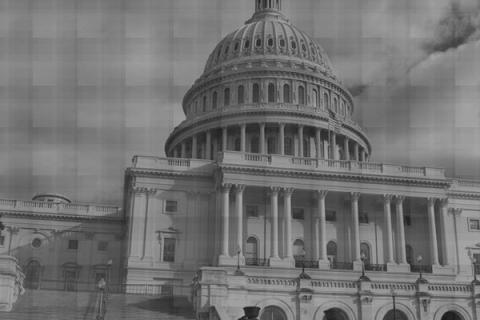As an expectedly intense 2012 election season quickly approaches, a new Gallup Poll reveals that a majority of citizens still support a third major political party to challenge the traditional two-party system.
Gallup asked the following to a sample of 1,013 adults:
"In your view, do the Republican and Democratic parties do an adequate job of representing the American people, or do they do such a poor job that a third major party is needed?"
Despite support being down from 58% in August 2010, Americans by an overall margin of 52% to 40% believe that both Democrats and Republicans do such a poor job of representing their constituents that a third party is needed in American politics. When the poll is broken down by traditional political party voters, more Republicans, at 52%, currently support a third party versus a mere 33% of Democrats.
While it's seemingly typical that the party opposite the sitting president's party would advocate more for a third party as Democrats did during the Bush Administration's days in the White House, Gallup found for the first time that a significantly higher percentage of Republicans than Democrats are in favor of a third party at this point in time. This is a significant change from the 2006 Democratic Party's victories. In 2007, 48% of Democrats along with 43% of Republicans wanted to see a third party. That gap came even closer in 2008 when 40% of Democrats and 38% of Republicans shared the same sentiment.
The trend stayed consistent throughout 2009 and 2010, only to burst wide open at this point under the presidency of Barack Obama. Meanwhile and as expected, Independent support for a third party has always remained at a majority during the same time period, even reaching a peak of 74% during 2007.
In an examination of Tea Party members' views regarding a third party, Gallup found that 60% support such an idea while 44% of their opponents support the idea. Regarding whether or not the current two parties are adequate, Tea Party support plummeted to 32% while their opponents' support for this idea remained steady at 47%. This isn't surprising considering that the Tea Party has the feel of being a third party and has had an impact in holding the Republican and Democratic Parties accountable, particularly when it comes to deficit spending.
When surveying those adhering to political ideology apart from political party labels, Gallup found that support for a third party was at a majority among those whose ideology are conservative, moderate, or liberal (51%, 52%, and 52% respectively).
While facing certain institutional challenges like distributing electoral votes in the case of a third party candidate, Gallup's assessment of the country's sentiment toward a third party is that it wouldn't be surprising to see one run in 2012, reflecting the country's majoritarian sentiment. Donald Trump, for instance, has threatened to run as an Independent (despite electability questions). Eyes are also on Congressman Ron Paul to see if he will break from the Republican Party to run as an Independent against Barack Obama. However, Gallup posits that a third party candidate acting as a major factor is unlikely based on history.
Aside from the institutional challenges facing a third party candidate, it is certainly not that far-fetched to rule one out if sentiment against the two parties continues to rise. The Tea Party seemingly came out of no where, was underestimated, and yet flexed some heavy muscle in 2010. Furthermore, as the technology of communication continues to rapidly evolve, the "history" of failures that third party candidates have experienced wouldn't necessarily be applicable this time around.
After all, there's a first time for everything.

